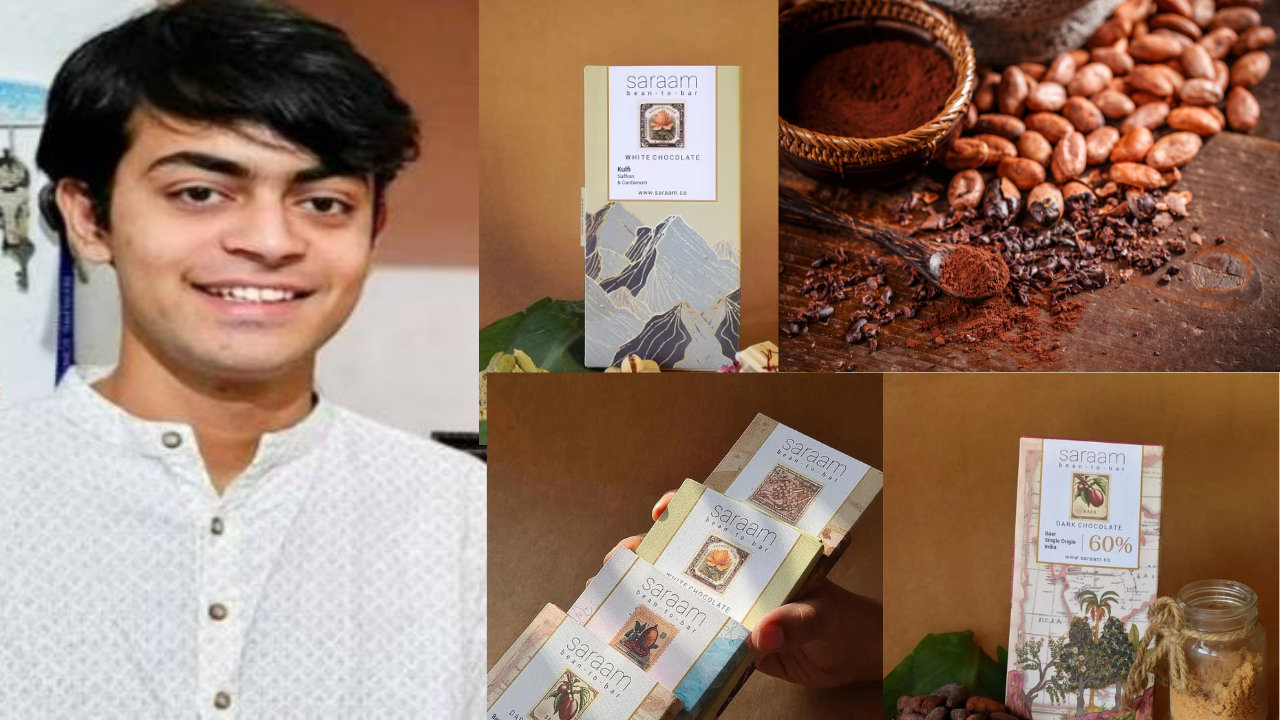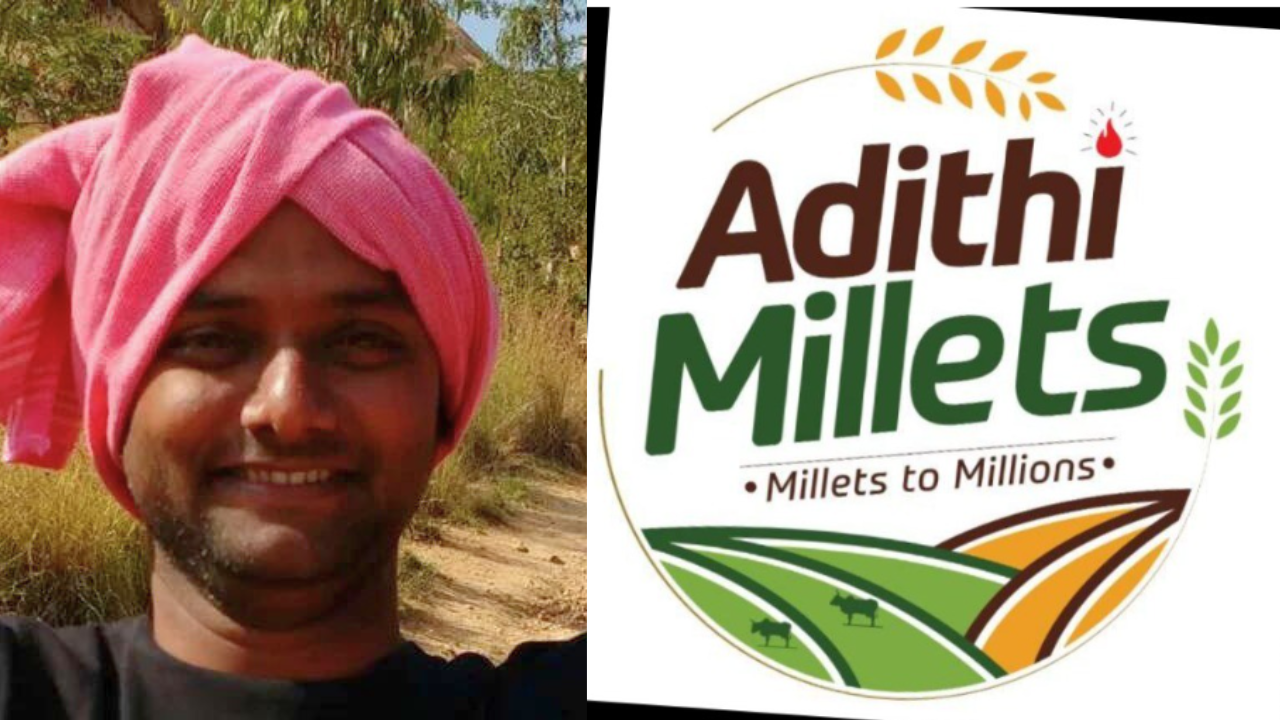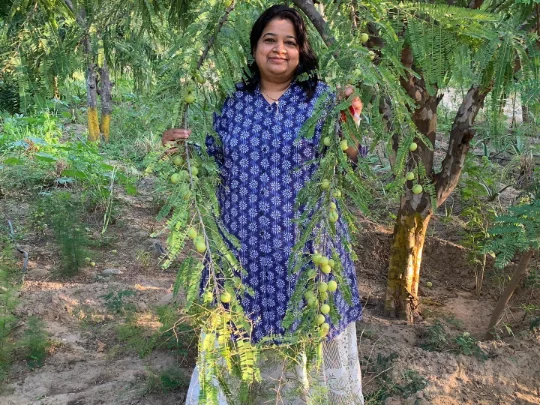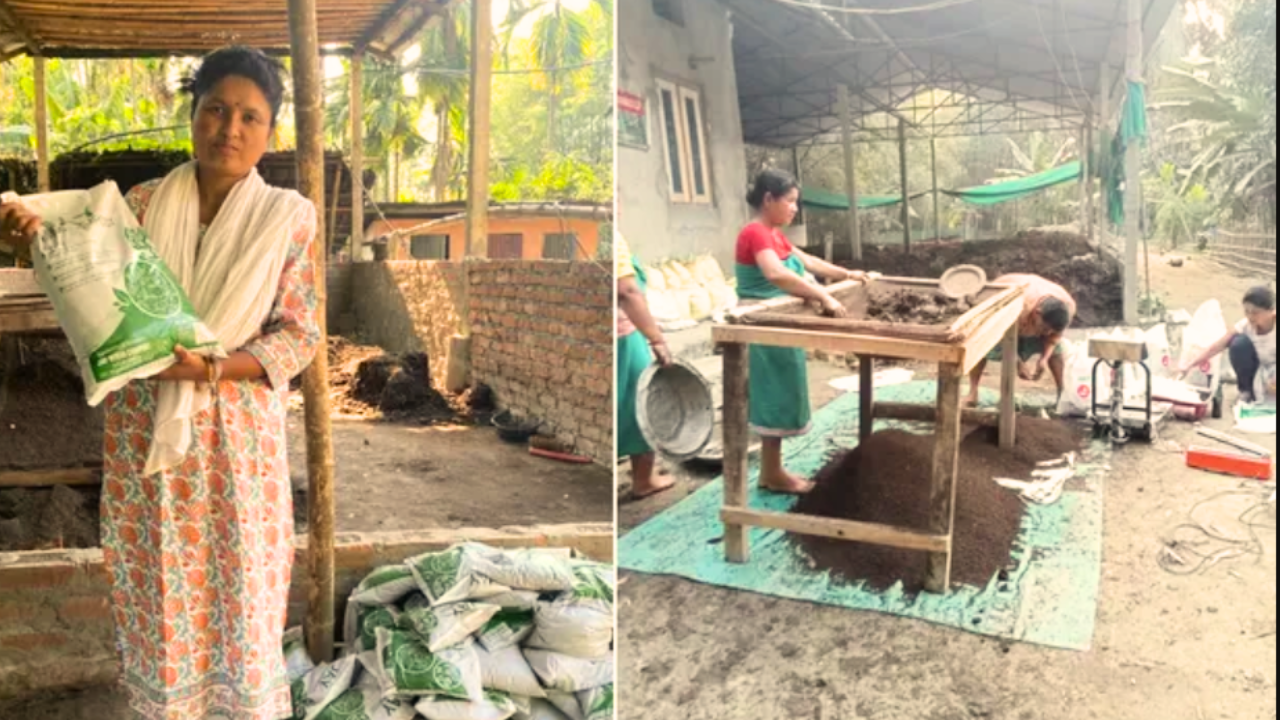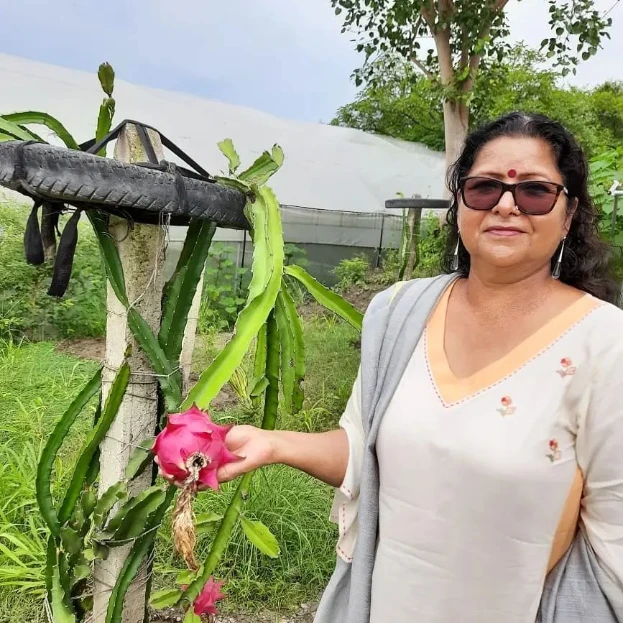Can you picture being able to cultivate nutritious, residue-free crops without soil or coco peat? Two friends, Amit Kumar and Abhay Singh, who graduated from IIT Bombay and are based in Rajasthan, turned this imagination into reality. They started a company called Eeki Foods, which focuses on eco-friendly farming using hydroponics on a large scale.
According to Amit and Abhay, their method reduces water wastage by 80 percent and enables crops to grow 75 percent faster compared to traditional approaches. They achieve this by cultivating crops on unproductive lands using specialized climate-resistant chambers. This innovative approach has led to significant annual profits for their company.
Eeki Foods currently manages farms spanning seven acres in Panipat (Haryana), Kota district, and Bundi district (both in Rajasthan). Additionally, they are in the process of developing another 33 acres of land.
Explaining the origin of the name, Abhay says, “We derived ‘Eeki’ from the Japanese concept of ‘Ikigai,’ which encourages a meaningful and healthy life. Our work is rooted in the same principle. Our goal is to offer the world a more sustainable and healthier method of cultivating food.”
A sustainable approach to generating food
“We were both curious individuals who collaborated on various projects. We would spend extra hours after college brainstorming ideas. We both had a strong desire to contribute something beneficial to society. Considering that a significant portion of India’s population is involved in farming, we decided to focus our efforts in this area,” explains Amit.
Given their agricultural background, the pair embarked on creating an innovative farming technology that would be environmentally friendly, affordable, and free from residues.
“As we delved into research, we realized that due to the increasing population in our country, future food shortages were likely. Additionally, we discovered that food had lost nearly 45 percent of its nutritional value. This information became our motivation – we aimed to utilize technology to make food production more accessible and efficient,” he states.
After researching different hydroponic techniques for growing food, they settled on one they named ‘medium-less farming.’ They secured patent rights for this technology in 2022.
“Our approach entails cultivating crops within an empty chamber within a controlled setting. The plant roots are suspended in the air, and we provide irrigation to yield our produce. We don’t rely on soil or alternatives like coco peat to nurture our fruits and vegetables,” Amit shares.
He elaborates, “While there are several farming methods, we recognized that none of them were truly sustainable. For example, organic farming takes time to yield results, and with the growing population, even if everyone transitioned to organic farming, the supply would fall short. Similarly, coco peat-based farming requires replacing coco peat after each harvest, making the process costly and labor-intensive.”
“However, our medium-less farming overcomes these limitations. Simplifying the process, what does a plant need from soil? Water, oxygen, nutrients, and support. By providing these four essentials, a plant can flourish. We create a controlled environment with 70 percent humidity, allowing plants to absorb water. We supply the roots with the necessary nutrients. Our growth chambers are built on the same principle. Plants’ roots hang in the air with support, but without a growth medium, enabling successful growth,” he clarifies.
“Just as people grow money plants in bottles without soil and we’ve seen lotuses flourish in water, our technology follows similar principles,” says Amit.
Eeki Foods has successfully cultivated a variety of vegetables including cucumber, tomato, eggplant, chili, pepper, spinach, bottle gourd, bitter gourd, and coriander, as well as fruits like musk melons and watermelons.
Discussing the benefits for farmers switching to their approach, Amit notes, “Sikkim initially adopted organic farming entirely, but encountered issues sourcing natural fertilizers. While organic farming may reduce costs, it also diminishes yields, impacting farmers’ profits. Moreover, conventional soil-based farming wastes 60-80 percent of water. Our technique offers faster yields, prevents water wastage, and allows for water reuse.”
Manish Kumar, who has been the farm manager at Eeki Foods for over three years, shares, “The technology is remarkable. It involves transforming barren land with minimal water into productive farmland. Although it’s a departure from my grandfather’s farming methods, it works just as effectively. The best part is its ability to yield produce year-round regardless of the traditional fruiting seasons.”
Because the crops are grown within controlled chambers, Eeki Foods can provide vegetables and fruits regardless of their typical growing seasons.
“In regions like Rajasthan, where temperatures range from 50 degrees Celsius in summers to -3 degrees Celsius in winters, we are cultivating food. Our goal was to enable food growth in any circumstances, and we have achieved that. Our approach thrives in the most challenging terrains,” Abhay adds.
Financial backing and revenue generation
In May of 2021, Eekifoods secured investment before their Series A funding from GSF Accelerator. This funding round also had contributions from various investors, including Naho Shigeta, who is the Founder and CEO of Infobridge Holdings; Shalin Sanjay Shah, who serves as a Director at Core91 VC; and a syndicate based in the Gulf region. Existing investors, such as Sumit Jain, who is the Country Head of Birdeye, and Dipesh Palod, a Senior Software Engineer at Microsoft, also joined in this funding round. The company mentioned that they plan to use this funding to continue developing their technology, expanding their operations, and building their team.
Abhay, one of the founders, shared their journey, stating, “We started by creating a small rooftop farm that was about 500 square feet in size, using an investment of Rs 15 lakh from our personal savings. About a year later, we established our first significant research and development farm in Kota. This venture was made possible with the support of our friends and early supporters, Himanshu and Shweta Sharma. By that point, we were generating a monthly income of around Rs 20,000.” Currently, Eekifoods has a fully operational commercial farm in Bhilwara, generating a monthly revenue of approximately Rs 3.5 lakh. Another farm in Talera is on the brink of starting production, and two additional commercial farms are under construction in Kota.
Abhay also mentioned, “We have a commitment to establish 10 more farms within this year. Our goal is to achieve a monthly revenue of Rs 40 lakh by the end of this fiscal year.” He explained their business model, stating, “Currently, we collaborate with farm partners to set up commercial farms. They provide the initial capital, while we take on the responsibility of cultivation and sales. Eekifoods directly supplies these vegetables to upscale retail stores. For every kilogram of tomatoes produced, for example, we give our farm partner around Rs 16/kg as compensation. This compensation varies with each crop.”
What Next?
Eekifoods currently serves 300 individual customers in Kota. During the lockdown, the startup began selling directly to customers in Neemuch and supplying to five stores in Jaipur.
Abhay, a representative of the company, mentions, “We’re excited about expanding to the NCR region and are in discussions with farm partners and retail stores in Gurugram and Delhi.” Eekifoods has ambitious plans to establish 12 farms by the end of this financial year, and by the following year’s end, their goal is to have around 50 farms across NCR and Northern India. These farms will supply high-end grocery stores. The startup also aims to form strategic partnerships with local vegetable distributors and sellers.
According to Eekifoods’ estimates, the potential market in India is valued at around $13 billion. Abhay explains, “Our focus is on Delhi NCR and major Tier-II, III cities in Rajasthan like Kota, Jaipur, Neemuch, Indore, and Udaipur for the next three years.” He emphasizes that many retail stores and distributors seek a consistent supply of chemical-free vegetables at reasonable prices, which is precisely what Eekifoods offers. Unlike conventionally grown vegetables that often contain pesticides and have unpredictable availability, Eekifoods provides a solution that allows retailers and distributors to offer uniform quality, size, and shape throughout the year. This benefits both them and the end customers.
Eekifoods faces competition from Organic Garden, UrbanKisaan, Simply Fresh, and Nature’s Miracle. These competitors mostly focus on exotic leafy vegetables, strawberries, nutraceuticals, and other types of vegetables.
Abhay highlights the startup’s unique selling proposition: “We stand out by producing completely residue-free and fresh fruit-bearing vegetables at prices comparable to conventional market rates.” He further elaborates, “Our technology, the growing chambers, enables us to achieve a 40 percent lower growing cost for various Indian fruit-bearing vegetables compared to other hydroponic methods based on coco-peat.”


